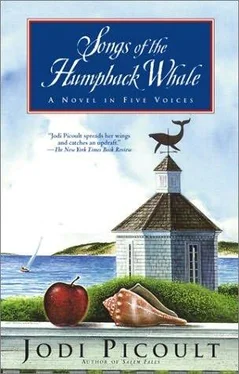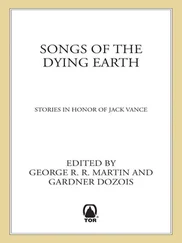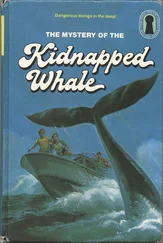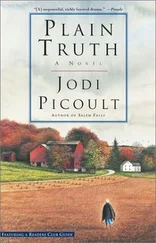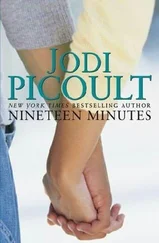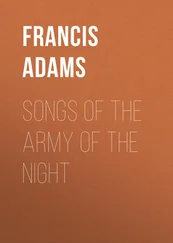On the crest of the hill is a huge house, white with green trim. It has a double porch and a hammock swing and factory doors with wavy glass. From its outside I just know it has a long spiral staircase inside. There are four windows on the second floor alone. “I don’t see why we don’t take a look around,” I suggest, and I make a move towards the house.
“Rebecca, you can’t just walk into someone’s house you don’t know. We’ll walk around out here, and see if we can’t find Joley.” She links her arm through mine.
We walk down the slope of the hill to the back side of the barn, and as we get closer there is a buzzing sound. I unlatch the hinge of the fence that leads into this penned-in area. There are little pellets everywhere-you don’t have to be a genius to know manure. Under the ledge of the barn is a man with a power tool of some kind, which is attached by a cord to an outlet somewhere above him. He has a sheep sitting like a human, on its rear end, and he is standing behind it and holding its front legs. At first glance, it looks like they are performing a sort of dance. The man takes the tool-it’s a razor-and begins to run over the matted coat of the sheep. Funny, I think. It doesn’t look at all like a cloud, like sheep are supposed to. The coat falls off in a thick blanket; it lands in the hay and dirt. As the sheep gets progressively naked, I notice its potbelly and tired eyes. From time to time the man wrestles with the sheep, the razor waving. He pushes with one foot and twists the body of the animal so that it lies this way or that. It always lands the way he seems to want it to land. When the man does this, the muscles in his arms stand out.
Finally he turns off the humming razor and helps the sheep to its feet. It looks at him like it has been betrayed. It doesn’t resemble a sheep at all anymore, but a goat. It runs down a rocky path toward the apple trees. The man wipes his forehead with the sleeve of his T-shirt.
“Excuse me,” my mother says, “do you work here?”
The man smiles. “I suppose you could say that.”
My mother takes a step closer. She watches her feet to see where she is stepping. “Do you know someone named Joley Lipton? He works here too.”
“I’ll take you to him in a minute, if you’d like. I’ve got one more to shear.”
“Oh,” my mother says, disappointed. “All right.” She leans against the fence and crosses her arms.
“If you can help me out this will go faster. Just give me a hand in here bringing out the last ewe.” He opens a door I did not notice, one that must lead to a pen inside the barn. My mother rolls her eyes at me but follows the man inside. I can hear him saying things softly to the sheep. Then they appear at the door, all three of them, and the man motions toward the ledge where he was shearing before.
My mother’s shirt is falling off her right shoulder, where she is bent down. Her arms look tight and uncomfortable. “What would you like me to do with this?”
The man tells her to walk the sheep to where the other one was. She does and then the man lets go on his side to pick up the razor. As he does this, my mother lets go of the sheep on her side. “What are you doing?” the man yells, and the sheep bolts away. “Catch it,” he yells to me, but every time I take a step towards it, it runs in the other direction.
He glares at my mother, as if he has never seen anyone so stupid-in his life. “I thought it would just stay put,” she says. Then she runs to a corner of the pen and tries to grab the sheep by the wool of its neck. She comes close but she slips on wet hay and lands in a pile of manure. “Oh,” she says, on the verge of tears. “Rebecca, get over here.”
In the end it is the man who catches the sheep and who shears it single-handedly. He either pretends he has not seen my mother fall or he just doesn’t care. He runs the razor over the body of this sheep in minutes, leaving a soft fleece on the ground like snow. My mother stands up and tries to shake off manure. She doesn’t want to touch it with her hands, so she rubs up against the fence. The man, who sees this, laughs.
When he has let the sheep run free, he closes the hinge door on the pen inside the barn and unplugs the razor. He walks over to where my mother and I are standing. “Tough break,” he says, trying not to crack up.
My mother is furious. “I’m sure this isn’t appropriate behavior for a field hand. When I tell Joley about this, he’ll report you to the person who runs the place.”
The man holds out his hand, and then on second thought withdraws it. “I’m not too worried about that,” he says. “I’m Sam Hansen. You must be Joley’s sister.”
I think this is hilarious. I start to laugh and my mother glares at me. “Could she clean up before we find Uncle Joley?” I say, and then I hold out my own hand. “I’m Rebecca. Joley’s niece.”
Sam takes us up to the house on the hill, which he calls the Big House. He says it was built in the 1800s. It is decorated with very simple country-style furniture: lots of light-colored wood and blue and red. Sam takes us to our respective rooms (up the spiral staircase). My room used to be his as a kid, he says. And my mother is staying in his parents’ old bedroom.
My mother washes off and changes and comes back downstairs holding her dirty clothes. “What should I do with these?”
“Wash them,” Sam suggests. He starts to walk outside and leaves my mother standing beside me, gaping.
“He’s a hell of a host,” she says to me.
Sam explains the different sections of the orchard as we walk through it en route to see my uncle. The top which we drove past is the commercial section, which gets sold to supermarket chains. The bottom is retail, which ripens later and gets sold to local farmstands and the general public. Each section is sectioned again according to the type of apples grown. The lake down at the edge of the orchard is Lake Boon, and yes, you can swim in it.
At one point he calls to a tall man who is cutting branches off one tree. “Hadley,” Sam says, “come meet Joley’s relatives.”
When the man approaches us I see that he isn’t old at all. He has sunny hair cut irregularly, and soft brown eyes. Like the cows, I think. He smiles at me first. Then he shakes my mother’s hand and introduces himself. “Hadley Slegg. It’s nice to meet you, ma’am.”
“Ma’am,” my mother whispers to me. She raises her eyebrows.
Hadley drops behind Sam and my mother so that he can speak to me as we are walking. “You must be Rebecca.” I am thrilled that he knows me. I don’t even ask how. “What do you think of Massachusetts?”
“It’s pretty,” I tell him. “Much more quiet than California.”
“I’ve never been to California. I’ve heard things, of course, but I’ve never been.” I’d like him to tell me what he’s heard but he doesn’t elaborate. “You still in school?”
Nobody has asked me about school in the longest time. “Are you?”
Hadley laughs. “God, no. I finished with that a long time ago. I wasn’t the best student, if you know what I mean.” He waves his hand out over the trees we’re passing. “But I like what I’m doing, and I’ve got a good job thanks to Sam.” He looks at me a little more closely. “So you’re a swimmer?”
“How did you know that?” I say, amazed.
“I can see it through your shirt.” How stupid of me. I am wearingmy “GUARD” bathing suit under this T-shirt because it is so hot today.
“I was a lifeguard in San Diego. Not a real ocean guard, but just at a pool.” I look at him, but I get embarrassed and turn away.
“That’s tough work,” Hadley says, “a lot of responsibility.” He raises his hand to his head and ruffles his fingers through his hair. I smell strawberries. “You know, I could take you around and show you how this place works. It’s kind of interesting, really.”
Читать дальше
